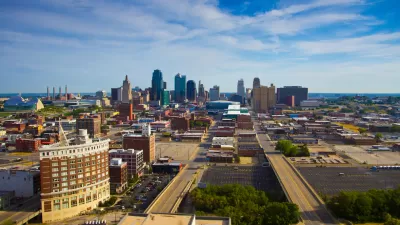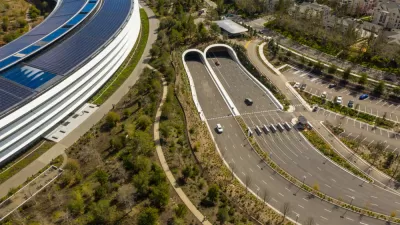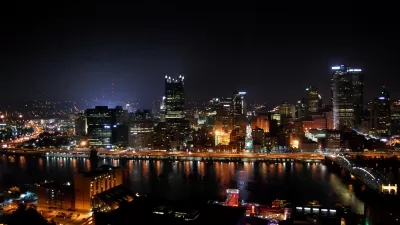The city's growth and the arrival of tech giants like Meta could signal a tech-based renaissance.

"Some 50 years after the opening of its airport, as well as a sparkling football stadium-baseball park sports complex named after native son and former President Harry S. Truman, the city is ready for a long overdue makeover," writes Jon Swartz about Kansas City. Now, the city plans to open a $1.5 billion international airport next year, among other major projects that boosters hope will encourage tech companies and other employers to move to the city.
On Thursday, Facebook parent Meta Platforms Inc. FB, +2.92% announced plans for an $800 million data center at Golden Plains Technology Park, a 1 million-square-foot facility near the airport. A $351 million extension of the city’s street car line should be complete by 2025. An 11,000-seat, soccer-only stadium for the KC Current – the first in North America for a professional women’s team – is scheduled to open in 2024 for $70 million.
"'I prefer to think of this area as Silicon Prairie,' Tom Herzog, chief operating officer of Netsmart Technologies Inc., which develops and sells health-information technology such as electronic health records. 'The health tech ecosystem sits in the middle of the heartland.'"
As Swartz writes, "Cybersecurity, architecture and engineering tech and animal agricultural tech also highlight a region of 2.65 million people that LinkedIn ranks as No. 8 in net in-migration since the pandemic, as well as among the top-15 metropolitan areas for tech jobs per capita."
FULL STORY: Something is cooking in Kansas City’s tech scene — could it be a renaissance?

Planetizen Federal Action Tracker
A weekly monitor of how Trump’s orders and actions are impacting planners and planning in America.

Map: Where Senate Republicans Want to Sell Your Public Lands
For public land advocates, the Senate Republicans’ proposal to sell millions of acres of public land in the West is “the biggest fight of their careers.”

Restaurant Patios Were a Pandemic Win — Why Were They so Hard to Keep?
Social distancing requirements and changes in travel patterns prompted cities to pilot new uses for street and sidewalk space. Then it got complicated.

Platform Pilsner: Vancouver Transit Agency Releases... a Beer?
TransLink will receive a portion of every sale of the four-pack.

Toronto Weighs Cheaper Transit, Parking Hikes for Major Events
Special event rates would take effect during large festivals, sports games and concerts to ‘discourage driving, manage congestion and free up space for transit.”

Berlin to Consider Car-Free Zone Larger Than Manhattan
The area bound by the 22-mile Ringbahn would still allow 12 uses of a private automobile per year per person, and several other exemptions.
Urban Design for Planners 1: Software Tools
This six-course series explores essential urban design concepts using open source software and equips planners with the tools they need to participate fully in the urban design process.
Planning for Universal Design
Learn the tools for implementing Universal Design in planning regulations.
Heyer Gruel & Associates PA
JM Goldson LLC
Custer County Colorado
City of Camden Redevelopment Agency
City of Astoria
Transportation Research & Education Center (TREC) at Portland State University
Camden Redevelopment Agency
City of Claremont
Municipality of Princeton (NJ)





























